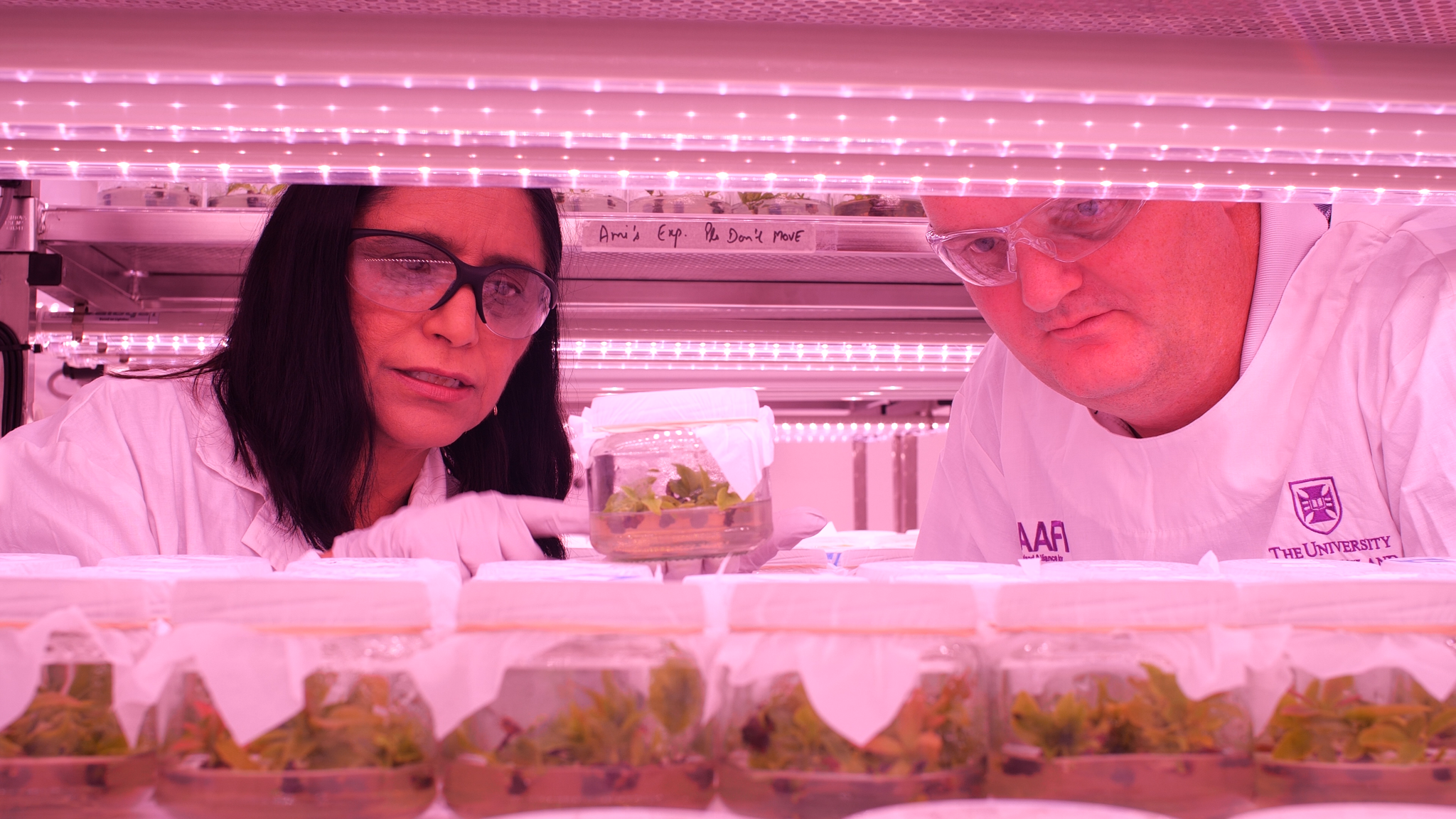
Avocado will never go extinct and could even feed humans on Mars thanks to a new scientific breakthrough by Australian scientists. /CFP
Avocado will never go extinct and could even feed humans on Mars thanks to a new scientific breakthrough by Australian scientists. /CFP
Vegans and hipsters rejoice! Avocado could one day make its way to menus on Mars.
In a never-before-done feat, scientists at the University of Queensland (UQ) in Australia have successfully brought back to life avocado plant cuttings that were frozen in liquid nitrogen. The achievement guarantees that the fruit never goes extinct on Earth and potentially ensures a way for space colonizers to bring the brunch staple on their missions in the future.
The researchers resorted to cryopreservation, a method to store human eggs and sperm for future use, to chill very small plant parts, called shoot tips, from two avocado varieties, which were later defrosted then revived and are now growing at a UQ greenhouse.
"This is a major breakthrough and it's the first time it's been done in the world," said Chris O'Brien, a PhD candidate at the university who led the years-long lab efforts.
"What we are doing is taking a small, tiny tiny cutting from an avocado tree and plunging it into liquid nitrogen or minus 196 degrees Centigrade, but then reviving the entire plant after taking it out," explained Neena Mitter, director of the UQ Center for Horticultural Science.
Outside fertility clinics, the technique has benefited conservationists in their quest to save potatoes, apples, berries and bananas in previous decades. But there was no such protocol for the world's most Instagrammable fruit – and O'Brien admits coming up with one wasn't an easy endeavor.
Submerging cells in liquid nitrogen can potentially preserve them indefinitely, but for 18 months, the team's attempts to resuscitate frozen samples resulted in "brown mush," O'Brien said in a statement. With no precedents to draw on, he tinkered with different techniques, pre-treatments and re-hydration mixtures until his efforts bore fruit.
"One day I was looking under the microscope and I was like 'oh wow – it looks like it's alive'," he told Modern Farmer this week.

UQ's Professor Neena Mitter (L) and Chris O'Brien inspect avocado plants. /University of Queensland
UQ's Professor Neena Mitter (L) and Chris O'Brien inspect avocado plants. /University of Queensland
The team was met with 80 percent success in reviving chilled Reed avocados and 60 percent with another cultivar, called Velvick.
Waking up the avocado shoot tips from their cryogenic slumber takes about 20 minutes, and within two months, the plants begin to leaf out and are then ready to be moved from petri dishes to soil.
A single shoot tip can grow 500 avocado plants, researchers said. It's a good start if they were ever tasked with the mammoth challenge of repopulating the planet with the trees that have given foodies worldwide something to slather onto toast and zhuzh up smoothies.
Appetite for the tropical fruit has exponentially grown in the past years as health-conscious consumers looked to infuse their diets with nutrient-dense foods, from acai to kale. Avocado, with its bright green, buttery richness and healthy fats, gathered a cult-like following, taking over menus at hipster cafes and dominating social media feeds.
But the future is anything but certain for this powerhouse of creamy goodness thanks to changing climate, pesky critters and fatal fungi. This has pushed the Australian-U.S. team to prepare for any eventuality, including future avocado shortages, or even worse, a full-blown extinction.
"The aim is to preserve important avocado cultivars and key genetic traits from possible destruction by threats like bushfires, pests and disease such as laurel wilt – a fungus which has the capacity to wipe out all the avocado germplasm in Florida," O'Brien said.

Recovered avocado cryopreservation plants. /University of Queensland
Recovered avocado cryopreservation plants. /University of Queensland
Staving off a guacapocalypse on Earth surely calls for a toast, but there's also cause for astronauts to be over the moon.
"I suppose you could say they are space-age avocados – ready to be cryo-frozen and shipped to Mars when human flight becomes possible," Mitter, the director, said. "But it is really about protecting the world's avocado supplies here on Earth and ensuring we meet the demand of current and future generations for their smashed 'avo' on toast," she added.
Admittedly, it will be some time before humans on the Red Planet could load their nachos and burritos with the green stuff, but in the meantime scientists will continue their experiments.
The research team said it will keep an eye on the growth of the 80 recovered avocado plants growing in the greenhouse and monitor their flowering times and fruit quality. O'Brien also has plans to cryopreserve other avocado varieties to guarantee humanity never runs out of dips for tortilla chips and toast toppings.